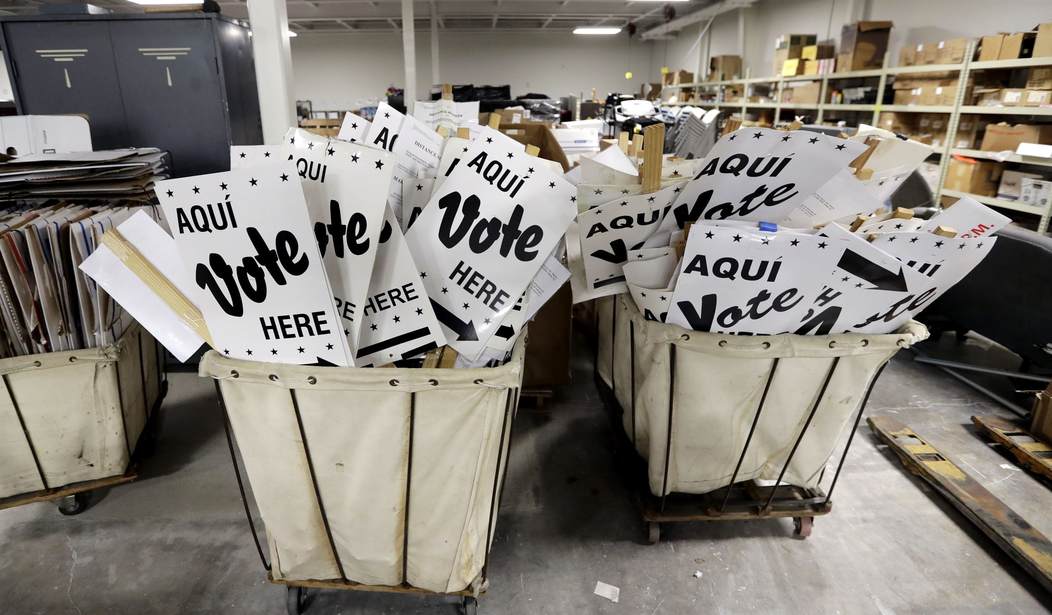The election season got started this past Tuesday in Texas, and the primary results are being analyzed for clues about what they mean for November.
The results confirmed that the Democratic enthusiasm is real, but it's probably not strong enough to turn Texas blue. The number of votes cast in Democratic primaries nearly doubled those from four years ago. However, the 1,037,779 Democratic voters fell half a million short of the GOP's 1,543,674 votes. Primary votes don't translate directly into general election results, but there's nothing in the data to suggest a big blue wave sweeping over Texas.
However, not all of America is like Texas. The Democratic enthusiasm on display in Texas could easily be enough to give Democrats control of Congress and make Nancy Pelosi the Speaker of the House. Texas results confirmed the conventional wisdom that millions of Democrats can't wait to express their displeasure with President Donald Trump at the polls.
The question, though, is how excited Republicans are to defend their president and his agenda. His most enthusiastic supporters will be there, but what about the more reluctant Trump voters?
In 2016, the president was propelled to victory with the votes of people who didn't think he was qualified for the job. Ten percent of all voters cast their ballot for him despite this enormous reservation. Why did they do so? Partly because they also thought his opponent was unqualified. In other words, Trump was the lesser of two evils.
Today, many of these voters probably disapprove of the president. They don't like the way he conducts himself and the way that he ignores institutional norms. But, they are still glad he's in office rather than Clinton. They believe it is good for the country that Neil Gorsuch is on the Supreme Court, that there is a serious effort to reduce the regulatory burden, and that taxes have been cut. Is that enough to get these voters to show up at the polls in November? How many of these voters may decide it's just not worth the effort?
Recommended
More than likely, the answer depends upon what the Democrats do. Will they nominate centrist candidates or progressives? From the perspective of reluctant Trump supporters, those two options look vastly different. A centrist establishment Democrat might not be that bad. In fact, some reluctant Trumpers might prefer such a candidate to a very conservative GOP candidate. But they would feel much differently about candidates from the left wing of the Democratic party.
The early indications from Texas suggest that the Democratic primary voters are more likely to prefer progressive Democrats and reject the establishment. If that trend continues nationwide, reluctant Trump supporters may conclude it's worth the effort to show up and vote once again for the lesser of two evils.
Obviously, there's a long way to go until votes are cast in November. In fact, there's a long way to go before we even know who the Democrats will nominate in many key races. But it's quite likely that the reluctant Trump supporters could determine control of Congress for the next two years.

























Join the conversation as a VIP Member